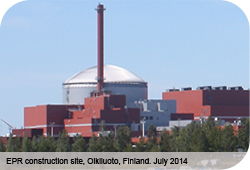The UK has signed a cooperation agreement with NuGen, a joint venture between Japan’s Toshiba and France’s GDF Suez, for a finance scheme for the 3.6GW nuclear power station at Moorside, West Cumbria.
The agreement opens access to the UK Guarantee Scheme, which was introduced in 2012 to boost infrastructure projects in the country.
The UK and NuGen will now work together to evaluate how the scheme can bring in external finance for the plant.
The facility is due to be the largest new nuclear development in Europe, with capacity to power up to six million homes.
Three Westinghouse AP1000 reactors will be set up under the project, which will offer combined power supply of 3.4GW by 2026.
The first among the three reactors is likely to be connected to the grid by the end of 2024, according to Nugen.
The project is yet to clear necessary licences and permissions for its development.
Final Investment Decision (FID) for the project is likely to be taken in 2018.
NuGen chief executive Sandy Rupprecht said: “The signing of this co-operation agreement with HM Treasury is another demonstration of NuGen’s forward momentum as we power forward with our Moorside project in West Cumbria.”
Earlier this year, UK Energy Minister Michael Fallon stated that the project will attract £10bn of investment and create almost 21,000 job opportunities, reports BBC News.


















